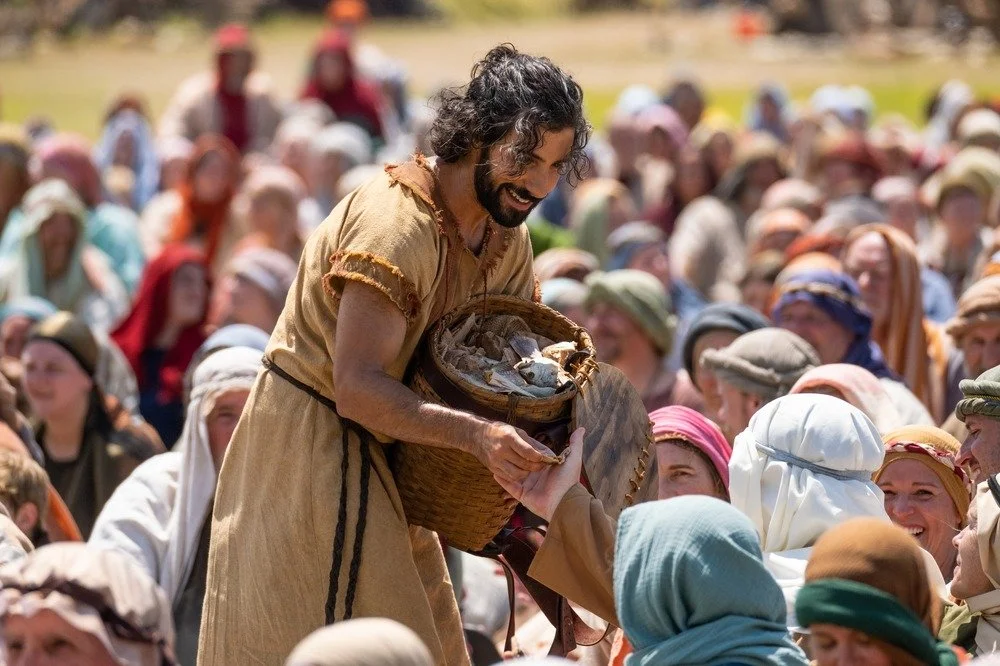When “Protect Your Peace” Becomes an Excuse to Look Away
Have we turned self-protection into the goal—and given ourselves permission to ignore our neighbors and our own accountability?
Photo by Karola G
Every time I’m angry, exhausted, or overwhelmed by the state of the world, I’ve heard versions of the following:
“Turn off the news.”
“Stop being on social media.”
“You need to read your Bible, not the news.”’
“Stop paying attention to politics; it’s all corrupt anyway.”
“There’s too much noise online. Protect your peace.”
But the last time a pastor preached this, something in me resisted. The message felt off, or at least incomplete.
Yes, the internet is chaotic. And yes, online spaces can be a Petri dish of negativity that replicates like greedily growing bacteria. The instruction sounds harmless enough. But somewhere along the way, we started spiritualizing this advice — treating disengagement itself as holy.
Probably a million and two articles have been written about the harms of too much screen time. I’m not talking about that. And I am not defending a life spent attached to a constant input of everything online. But, when Christians feel disturbed by the pain in the world, if the main advice is to log off, it concerns me. As if the most Christlike thing we can do is retreat.
We’ve built a false dichotomy: online bad, offline good.
For the sake of this article, let’s assume leaders offer this advice with good intentions. But recently, the people who tell me to “just log off” are often the same ones who call me “very passionate” and ask, with suspicion, where I’m getting my information — as if my frustration itself proves I’m misinformed.
This simple cause-and-effect ignores deeper complexities — and assumes that if the internet is what’s upsetting us, stepping away must be the cure. But not every moment of discomfort comes from bad inputs. Sometimes it comes from truth. And truth is disruptive.
If the message stops at “log off,” we end up encouraging self-protection and disciplining each other toward avoidance. It teaches that our peace is fragile – so fragile we need to run away from discomfort. This message leaves us without a next step — no guidance for reengaging with hard things or showing up in our communities. Instead, it communicates that comfort is the whole point.
I argue that our Peace, a fruit of the Holy Spirit, is supposed to be so steady and powerful, we shouldn’t have to protect it – we should be able to take it with us and distribute it.
Scripture displays a picture of biblical peace when the disciples feared they were going to die. They were, dare we say, very passionate about the problem they were facing. A storm slammed the boat they traveled in, waves crashing on it so hard that these seasonal fishermen were convinced they were going to die.
And, Lord help me, Jesus, the Prince of Peace, his precious dark curls laying unbothered on a pillow was taking a nap.
The disciples panicked, fearing that Jesus didn’t care about them, didn’t love them, and was willing to let them die. Jesus didn’t tell them to calm down, to toughen up, or to take a break from learning about this storm.
No. He stood up and distributed Peace. He didn’t retreat to “protect His peace”; He released it into the storm that was terrorizing the people He loved.
Photo by Johannes Plenio
This storm directly affected the disciples and Jesus demonstrated bringing peace with authority. But what about when the disciples learned about a problem that wasn’t touching them personally? What was Jesus’ instruction?
When the crowds gathered to hear Jesus teach for days and they grew hungry, Jesus instructed them to see the hungry people and do something about it. He told the disciples to make it their problem.
When the crowds gathered for days to hear Jesus teach and they grew hungry, Jesus told the disciples to make it their problem.
Noah James, who plays “Andrew” in the series, “The Chosen,” hands bread to a hungry woman while filming the Biblical scene of Jesus Christ feeding the 5,000 on the film’s set in Midlothian, Texas. - The Chosen
Let’s get into the hidden problems and assumptions with this avoidance messaging.
First, the message to “log off” rests on the quiet belief that things aren’t actually that serious. Because if the people—and pastors—giving this advice believed we were facing real injustice, the response wouldn’t be escape. It would be action. If they’re telling you to log off, is it because they’ve convinced themselves it isn’t really that deep, or urgent, or real?
This mentality — urging you to disengage from whatever stirs your anger or grief — assumes the real problem is overreaction, not injustice.
Many of us aren’t overwhelmed by noise; we’re overwhelmed by injustice and pain unfolding around us. And avoidance will always feel easier than choosing other-focused advocacy and humble responsibility.
Let’s consider Dietrich Bonhoeffer, whom many of us have turned to for wisdom this year. Can you imagine him hopping onto his anti-Nazi radio program to say, “Listen… what you really need to do is to turn my radio show off. You don’t want to get too worked up. Don’t read the news. Yes, we all know Hitler is about to invade another country but remember… protect your peace.”
Photo by Daniel Reche
Many things in this world should make us uncomfortable. Jesus Himself was not silent when confronted with hard-heartedness. In the synagogue, when the Pharisees watched Him to see if He would heal a man with a withered hand, Mark says Jesus looked at them “in anger, deeply distressed at their stubborn hearts.” His anger wasn’t inappropriate or ungodly; it was compassion refusing to let harm continue unchecked.
We need Christians who are brave enough to face the truth of their own participation in harm without crumbling or deflecting. We need believers who can listen without defensiveness, grieve their complicity, and step outside their comfort zones into compassionate action.
If our support, ignorance or silence have contributed to harm, let the Lord bring us into godly sorrow because look at what that will bring:
“Godly sorrow brings repentance that leads to salvation and leaves no regret, but worldly sorrow brings death. See what this godly sorrow has produced in you: what earnestness, what eagerness to clear yourselves, what indignation, what alarm, what longing, what concern, what readiness to see justice done.”
It brings us to repentance and to a place where we are ready to see justice done!
We’re talking inside the church. Repentance was always meant to begin with God’s people. When Solomon dedicated the temple, God responded:
“If My people who are called by My name will humble themselves, pray, seek My face, and turn from their wicked ways, then I will hear from heaven, forgive their sin, and heal their land.”
Israel was at peace; everything looked blessed. But God didn’t tell Solomon to call other nations to repent; the expectation was on Israel. Healing begins with humble repentance.
We are called to be peacemakers. The ones who boldly approach the throne of grace on behalf of the ones in pain and go into the hard places. We are to bring peace with us; not build protection around our hearts so we can keep peace for ourselves.
Our neighbors need peace. (“And,” in the voice of Miss Congeniality, “world peace!”) But despite all our online connectedness, we are not a very integrated society. We tend to live and interact mostly with those who look like us, live like us, and think like us. Even so, many of us truly do want to love our neighbor well.
We cannot love our neighbors if we don’t know what they are going through.
If I log off completely, how will I stay aware of what Black, Latino, and Asian American communities face each day—and the ways they keep creating, organizing, and persevering?
How will I learn about families displaced by floods or tornadoes? Or the Indigenous tribes in Alaska suffering under new oil drilling?
How will I understand the ache of furloughed government workers who feel forgotten? Or the mother begging for cancer research after funding was cut—while her twins are dying?
Love requires proximity, and awareness is part of proximity. We must be present, see the one in pain and then Jesus teaches us to go out of our way to bring assistance.
Jesus taught this explicitly in the story of the Good Samaritan. The priest and the Levite—the ones everyone expected to help—saw the wounded man and crossed the road. They looked away. They logged off, ancient-style.
The Samaritan didn’t. He refused to ignore suffering. He leaned in, made it his problem, and became the example we’re called to follow.
Photo by Barış Türköz
Turning away is a privilege. Logging off because it’s “too much” is a luxury many don’t have. People in pain can’t mute their lives. They show up because they have no choice, praying someone will notice, care and act. Only those unaffected can tune out.
And is that who we want to be? People who only care when it’s our turn to suffer?
Silence in the face of injustice has never been neutral. The prophets knew that. The civil rights leaders knew that. Bonhoeffer knew that when he warned, “Silence in the face of evil, is evil. Not to speak is to speak. Not to act is to act.”
Silence is complicity. And a peace built on turning away only reinforces the same harm.
And here’s what we rarely recognize: when decent people disengage, the people doing the hard work are left to fight alone.
Life before the internet is over. The simple, unplugged world we romanticize (think cotton dresses, sunny farms and kids chasing chickens) exists for most of us on a screen—filmed, edited, shared, and consumed. And despite all the noise and misinformation of the internet, there are still stubbornly good people using these same platforms to make things better.
Doctors debunking dangerous advice.
Fact-checkers digging for truth.
Writers offering clarity and compassion.
Mothers and trauma survivors rebuilding the village online.
Lawyers and professors fighting for civility and common ground.
Small businesses creating ethical solutions to real needs.
And even though fear spreads fast online, goodness spreads too. Those little free pantries popping up across the country? They started because one person posted a video and others caught the vision.
The point is — good people are trying. They’re showing up in the very spaces that exhaust us because they still believe change is possible. And they need us — the ones who care, who ache, who want the world to heal and who are looking for someone to give us a task that will make a difference.
If the people who care enough to be burdened all log off, how will we ever come together to fix what’s broken?
The Good Samaritan shows us what fixing the broken looks like: seeing the wound, moving toward it, and making it our problem. That’s the kind of love Jesus said would mark us as His disciples. And the truth is, some of the fractures we’re living with now exist because believers backed out of the very places that needed them.
Jesus carried a chaos-calming peace that didn’t retreat from pain. And He made it clear: when our neighbor is hurting - we don’t protect our peace - we make it our problem.
But if this is the peace we’re called to carry, we have to ask an honest question:
How do we stay present to a hurting world without breaking under the weight of its pain?
That’s where we turn next.




